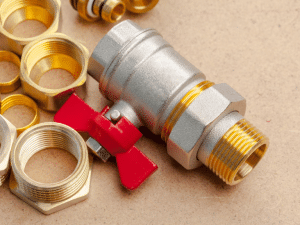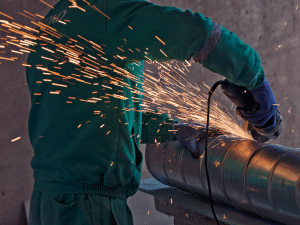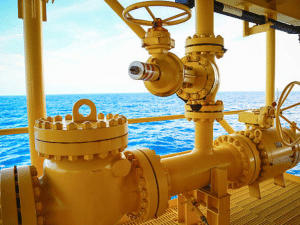How to Ensure Quality When Sourcing from Pipe Flange Suppliers
All industrial projects rely on durable and dependable components, particularly where high-pressure applications are involved. Therefore, the choice of oil and gas pipes and fittings suppliers in the UAE is more than a simple purchasing decision. It’s a strategic decision-making process. There are many suppliers of pipe flanges on the market, and quality can vary widely. How can you ensure that you are obtaining flanges that will not let you down under pressure? Let’s look at ways to identify quality and get long-term value from every order.
The Role of Pipe Flanges and Fittings in Industrial Applications
Pipe flanges may look like a normal component at first glance, but they carry a pretty big load. Each one locks two pipes, a pump, or a valve together and keeps the whole thing from dripping or blowing apart. Even a tiny gap can snowball into a pressure drop or, in critical fields like oil drilling or sewage treatment, a full-blown safety scare.
When engineers or procurement teams go shopping, they rarely just order flanges; they carefully select a brand, rating, and material. Sourcing from trusted suppliers in the UAE often pays off because those components must survive extra heat, cold, or grit once they are bolted into service.
Why Quality Matters in Pipes, Flanges, and Fittings
There’s always a cheaper option. But when you’re dealing with critical systems, saving a few dirhams on parts can cost thousands in repairs, or cause failures that are far worse. We’ve seen it happen.
High-quality components don’t just look better on view—they last longer, perform better, and help you avoid stress down the line. This is especially true in harsh conditions like offshore rigs or desert installations, where poor-quality materials just can’t hold up. That’s why experienced teams stick with oil and gas pipe suppliers who test their products, back them up with certifications, and deliver exactly what they promise. When quality is consistent, everything else becomes easier—planning, maintenance, even audits.
Key Quality Indicators When Sourcing Pipe Flanges
If you’re not a materials expert, don’t worry. There are still a few straightforward ways to spot whether a supplier knows what they’re doing—or if they’re just moving stock.
Here’s what to look for when evaluating pipe flange suppliers:
- Certifications that actually check out – Reputable suppliers won’t hesitate to share material test certificates (MTCs) and compliance with international standards like ASTM, ANSI, or ISO.
- Real inspection reports – Look for third-party test results: ultrasonic testing, hydro tests, or chemical analysis.
- Surface finishing – Rust or flaking paint is a red flag. Proper coatings are a must for any job exposed to moisture or chemicals.
- Tight tolerances and clean cuts – If the dimensions are even slightly off, things won’t fit right during installation.
- Batch traceability – Good suppliers can track each item back to its origin. It’s not just about transparency—it’s about accountability.
These aren’t just technical boxes to tick. They’re signs that the supplier takes their job seriously.
Common Red Flags to Watch Out For
It’s not always obvious when a supplier might cause problems, but there are warning signs. If you’ve worked in procurement or project planning long enough, you’ve probably come across a few of these:
- Unclear or missing documentation – If a supplier avoids questions about standards or material origin, that’s a huge red flag.
- Too-good-to-be-true prices – Unrealistically low quotes usually mean corners are being cut.
- No backup stock or delayed responses – This often leads to delays, which could throw off your entire schedule.
- Vague answers or slow communication – If it’s this hard to get clarity before an order, imagine what it’ll be like when something goes wrong.
- No past project references – A good supplier should be proud to share who they’ve worked with and what they’ve supplied.
You don’t need to be a materials engineer to trust your instincts. If something feels off—it usually is.
Questions to Ask Pipe Flange Suppliers
You don’t need a long checklist. A few simple, direct questions can tell you everything you need to know about a supplier’s quality, reliability, and attitude:
- Can I see the test certificates for your materials?
- What standards do your flanges follow?
- Do you do your own inspections or use a third party?
- Can you handle urgent orders or special sizes?
- Have you supplied to oil and gas projects before?
A solid pipe flange supplier won’t hesitate to answer. In fact, they’ll probably appreciate that you’re asking.
Building Long-Term Supplier Relationships
If you’re in this business long enough, you’ll find that the best suppliers aren’t just people you buy from—they’re people you rely on. Good oil and gas pipe suppliers are honest when there’s a delay, quick to suggest better alternatives, and always ready to help solve a problem.
So, how do you build that kind of relationship?
- Start with a small order – Use it to see how they handle delivery, documentation, and follow-up.
- Be upfront – Share your specs, timelines, and expectations clearly.
- Give feedback – If something goes







